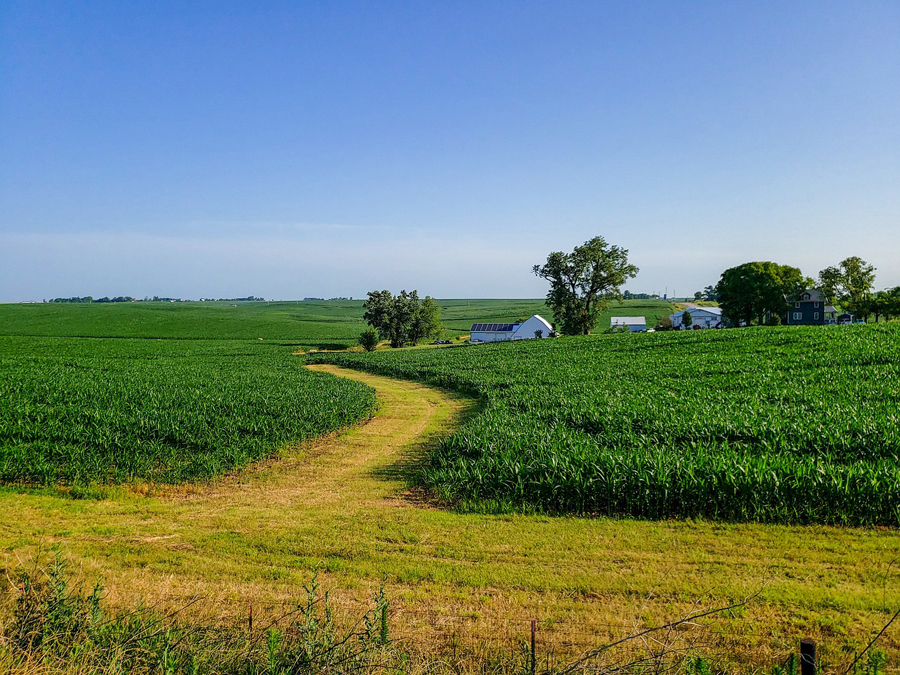
By Melanie Rossi
Contributing Writer
NORTHEAST WISCONSIN – The Fox-Wolf Watershed Alliance recently announced two new Climate Smart Agriculture Projects, both of which are designed to help farmers navigate sustainable agriculture practices.
Totaling over $12.8 million in funding from the United States Department of Agriculture (USDA), the projects’ goal is to foster strong environmental practices that farmers can use to benefit them in the changing agriculture industry.
The projects “build upon the work that the Fox-Wolf Watershed Alliance is already doing,” said Katie Woodrow, Climate Smart Agriculture Project manager.
The Fox-Wolf Watershed Alliance is a nonprofit that aims to “protect and restore the water quality across the Fox-Wolf Basin,” she said.
“The Fox-Wolf basin has a far reach, so we really have a large area that we are working to protect and restore the water quality of. Our primary focus is surface water, so what that means is we work to reduce runoffs and all of its sources.
“We also work a lot with agriculture because agriculture is a significant contributor to pollution runoff. So for about the last 10 years or so we’ve been actively working with our conservation departments that are county based. . . We pair with those conservation departments to bring funding to not only make sure that there is enough staff to support the agriculture in our region, but also bring cost share dollars so that farmers can try practices that are better for their soil on their farm and better for water quality.”
The Climate Smart Agriculture Projects—one of which is funded by a sub-award with Edge Dairy Cooperatives—originated from a grant by the USDA which aligned with the Fox-Wolf Watershed Alliance’s current goals.
Woodrow said, “The USDA advertised this opportunity to address our changing climate and the impact that agriculture has on that change in climate, particularly how it has to interact with sequestering carbon and reducing greenhouse gasses. So when the request for proposals was put out by USDA, we were able to identify that the work that they were looking to do really is concurrent with what we do now because the things that sequester carbon are also the practices that are good for water quality and soil health.”
Both projects focus on reducing runoff and sequestering carbon through the implementation of new farming techniques such as cover crops, no till and manure management.
“Cover crops essentially is the way to manage your fields so that something has a root mass, something is growing on your fields year round,” Woodrow said. “By utilizing cover crops, an additional set of plants are seeded in the fall after the crops are harvested, and that way it holds the soil in place over the fall, winter and spring months until the new commodity crop is planted.”
Combined with no till, which is a practice that involves not disturbing the land, the soil can better stay in place and is less prone to running off, one of the main contributors to water quality issues.
The third practice promoted by the project, the management of manure involves applying manure to the “surface where there are growing crops where they will take up those nutrients,” rather than work the manure in the soil mechanically as the process is traditionally done, Woodrow said.
“Essentially, the core practices here are built on having something living year round and not disturbing the surface to provide benefits for water quality as well as sequester carbon.”
Agriculture practices can be slow to change, and Woodrow hopes that these projects can help farmers take the risks necessary to change them.
“Once something is kind of an accepted practice,” she said, “sometimes it’s hard to try something new, and also there can be financial hurdles to trying something new. . . Our hope is [the funding] helps [the farmers] to get over the hurdle of adopting these new things.
“The other piece to that is many of the partners that we’re working with, particularly with our subaward with Edge Dairy Cooperatives, is having the conversation with processors. So we know that there are conversations happening right now in the supply chain talking about carbon sequestration, talking about climate change and what can happen in agriculture to benefit that, to continue to sequester carbon and make greenhouse gas benefits. And we wanna make sure that farmers are part of that conversation and that what processors are recommending for their farmers to do is something that’s realistic. There’s an opportunity through these grants to really open those channels of communication and prepare farmers for what the future markets will look like as processors demand more climate smart products.”
To learn more, visit https://fwwa.org.
